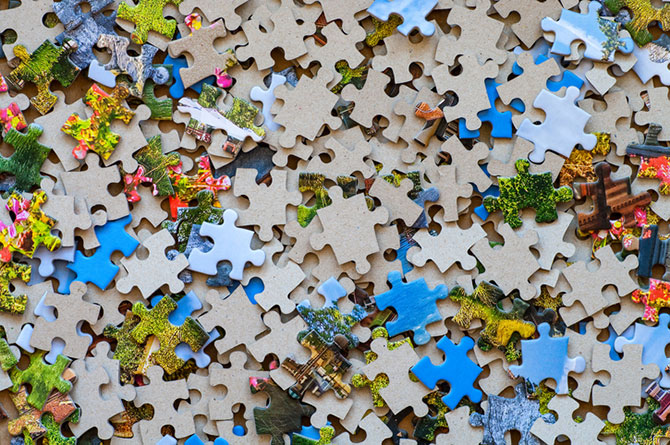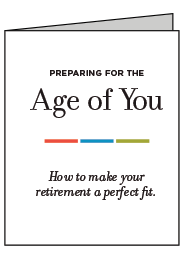“So many pieces, so little time” might be the motto, or at least the mindset, of jigsaw puzzle solvers.
Such hobbyists at PVE are a special breed and have their own vocabulary. “Loops and sockets,” “tabs and slots” and “innies and outies” describe the connections that create their craft.
“When I left the Resident Council in 2019, I cleared off the large table in my den,” said Don Haas. “What to do with all that space? I was already doing genealogy to fill my free time, so I needed a new issue. Puzzles??? That’s how I resumed doing something I hadn’t done since the ‘90s.”
“I work for an hour or two most days, usually after dinner and the news. I like nature scenes, national parks and famous sites such as the Golden Gate Bridge. For me, puzzling is a relaxing way to pass time, along with reading novels. I find it’s also mentally stimulating.”
A puzzler all her life, Caroline Keller does a Zigzone.com free puzzle each morning, using different “cuts” that are provided by the website.
“From working with kindergarteners to grandchildren to an Italian exchange student during a Thanksgiving break, as well as 1,000-piece puzzles here at Paradise valley Estates, puzzles are just FUN!” she said. “When you work on a puzzle with a child, it’s a common focus that also provides time to listen and talk. You learn about the variety of things that are on the child’s mind. It becomes a truly random conversation, a wonderful opportunity.”
“I am always working on a puzzle in some way,” said Phyllis Mosher. “Normally, I leave puzzles for a spell because they are addicting, and I don’t accomplish anything else. It is ‘Just one more piece!’ I like puzzles with multiple colors and objects or scenes.”
Irv Herman enjoys doing puzzles, “but not the itty-bitty 1,000-piece flat color ones. I don’t have the patience for them, but give me a 500-piece with a lot of color and contrast, and I’m in it gung ho.
“Challenges are fine, but not overwhelming ones. I had those when I was working. Now I prefer having fun with what I do. I admire what others have done and take pleasure in their exuberance in accomplishing the big ones.”
Puzzles are also recognized as a fun form of therapy. The fingering and positioning of the curlicued pieces improve manual dexterity as the success of connecting pieces stimulates the brain to improve memory and stave off dementia.
Under what circumstances would a die-hard solver not complete a puzzle?
“For this perfectionist, that is not an option,” Mosher replied.
As for Haas, “I can only think of two reasons: One would be if a disaster struck, and the other I’d rather not think about.”




